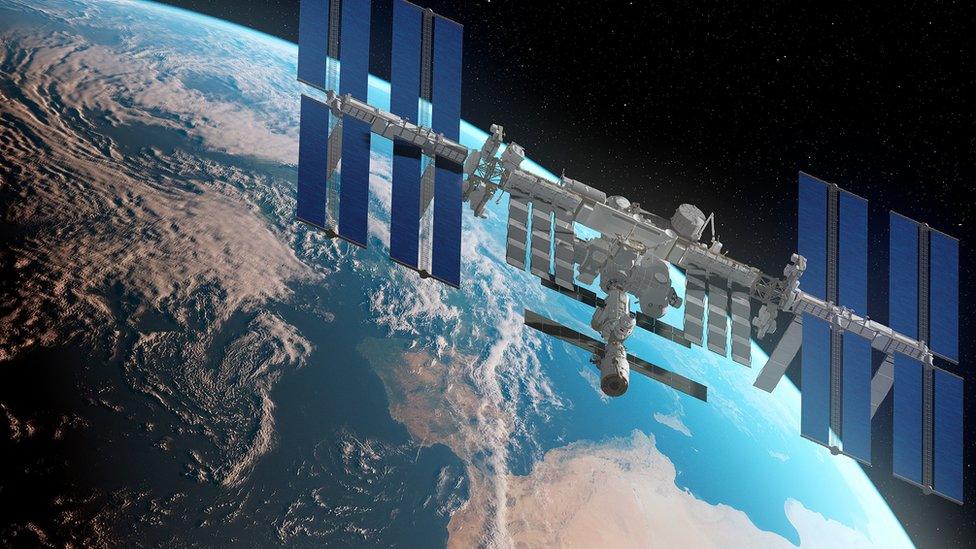Human muscle cells sent into space to learn about aging
- Published
- comments

Muscle cells will be sent to the ISS
Tiny human muscle cells will be blasted off into space as part of an experiment to look at how people can live longer and healthier lives.
The experiment is called MicroAge and will launch on a SpaceX Falcon 9 rocket and head to the International Space Station (ISS).
Scientists will study the cells in space to understand what happens when people age and why.
What is the MicroAge experiment?
Lab-grown human muscle cells have been put into small 3D-printed holders, which are the size of a pencil sharpener.
The cells, around the size of a grain of rice, will then be electronically stimulated to start contractions in the muscle tissue. Scientists will then monitor what happens.
When astronauts spend in time space, without the effects of gravity, it can cause their muscles to get weaker - just like they do in older age.
Researchers from the University of Liverpool, funded by the UK Space Agency will look at what happens to the muscle tissue in space and compare the results to what happens on Earth.
This will help them understand why muscles get weaker as people get older and look at ways to stop the aging process.
When muscles lose strength as people age it can affect their ability to carry out everyday tasks and increases the risk of falling over and longer recovery times from injuries.
Professor Malcolm Jackson, from the University of Liverpool, said: "Ageing is one of the greatest challenges of the 21st century and we will learn a great deal about how muscle responds to microgravity and ageing from the data we obtain from this study."
The experiment will launch today and will return to Earth in January 2022 for more analysis.
By harnessing the unique environment of the International Space Station our pioneering scientists could help us all live healthier, stronger lives.
- Published3 November 2021
- Published8 December 2021
- Published12 December 2021
